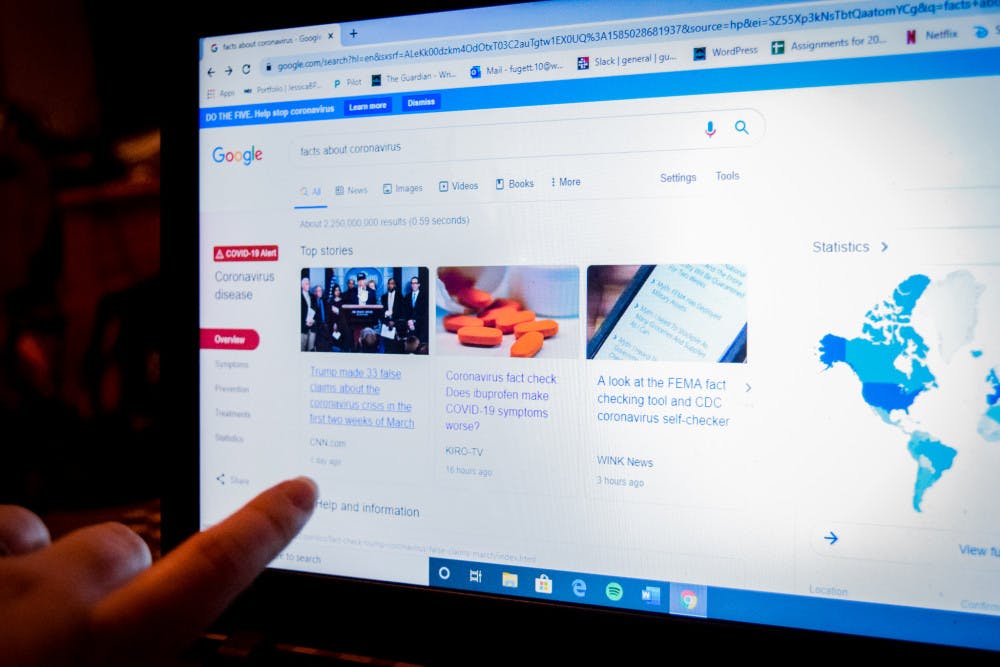How to fact check | Photo by Jessica Fugett | The Wright State Guardian
In a world of practically instant and incessant information and news, it’s easy to get caught up in the excitement and forget to fact-check the information.
“It’s very easy to share information without checking it. If you think it’s worth sharing with other people, it’s worth taking a minute to make sure of the claims,” said Mandy Shannon, head of the Instruction and Research Services Department.
There are very useful professional fact-checking websites that can be used to verify information. The three favorites that Shannon uses all include a section on COVID-19.
Shannon recommends websites such as Snopes, PolitiFact and FactCheck.
“The Poynter Institute, which owns PolitiFact, runs an international fact-checking institute. They offer some general suggestions on fact-checking coronavirus claims [on their website],” said Shannon. “They also have an Instagram project called MediaWise that focuses on claims that have gone viral on social media and walk viewers through the fact-checking process.”
Sometimes information can be easily fact-checked by simply performing a Google search about the information and adding the term “fact check” to the search, according to Shannon.

“Beyond fact-checking sites, I also encourage people to take a step back and ask some questions about the material you’re encountering. In the book ‘Blur: How to know what’s true in the age of information overload,’ the authors Kovach and Rosenstiel offer what they call ‘The Way of Skeptical Knowing,’” said Shannon. “It includes six steps: What kind of content am I encountering? Is the information complete and, if not, what am I missing? Who or what are the sources and why should I believe them? What evidence is presented, and how is it tested or vetted? What might be an alternative explanation or understanding? Am I learning what I need to? This works for everything from memes to scholarly articles.”
Shannon also suggests a strategy called reading upstream. This means finding the original source of the information rather than simply reading someone else’s interpretation of the news, according to Shannon.
“Finally, I’d also encourage people to take occasional news breaks. It’s important to stay informed, but when we reach information overload, it’s harder to apply rational criterial and make ourselves go through the process of fact-checking. It’s an anxious time and everyone needs to step away from the news once in a while,” said Shannon.
Coronavirus (COVID-19) is a respiratory illness spread between people in close contact with each other or through respiratory droplets from coughing or sneezing. To protect yourself and those around you, cover coughs and sneezes and avoid contact with the eyes, nose and mouth. Symptoms include fever, cough and shortness of breath, according to the Center for Disease Control and Prevention (CDC.)












